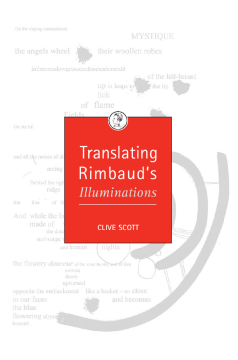
Additional Information
Book Details
Abstract
Translating Rimbaud’s Illuminations is a critique of the assumptions which currently underlie our thinking on literary translation. It offers an alternative vision; extending the parameters of literary translation by showing that such translation is itself a form of experimental creative writing. It also provides a reassessment of Rimbaud’s creative impulses and specifically his prose poems, the Illuminations.
In the expanding field of translation studies, a brilliant and demanding book such as this has a valuable place. In addition, it also provides some fascinating ‘hands on’ translation work of a very practical kind. Published as a sequel to the author’s Translating Baudelaire (UEP, 2000), it will become part of the canon.
Clive Scott is Professor of European Literature at the University of East Anglia, and a Fellow of the British Academy. His publications over the last few years include Translating Baudelaire (University of Exeter Press, 2000); Channel Crossings: French and English Poetry in Dialogue 1550-2000 (Legenda, 2002); The Spoken Image: Photography and Language (Reaktion, 1999); The Poetics of French Verse: Studies in Reading (Clarendon, 1998).
‘…this bold and highly stimulating exploration of the limits of translation activity…’ ‘His passion and enthusiasm for an experimental translation which defamiliarises and destabilises make this an exciting tour de force and a significant contribution to the field of translation studies.’ (Forum for Modern Language Studies, 43, 3 July 2007)
‘…highly stimulating and challenging work…’ ‘…one enjoys and applauds this adventurous attempt to release the source text from the obsession with understanding and to prevent the traduttore of Rimbaud’s prose poems from becoming a traditore.’ (MLR, 102.4, 2007)
‘Clive Scott’s highly original study forges innovative lines of inquiry, while being a pleasure to read thanks to its fluid prose, thorough research and clear presentation of the translation techniques.’(Denise Merkle, Target, 21:1, 2009)
